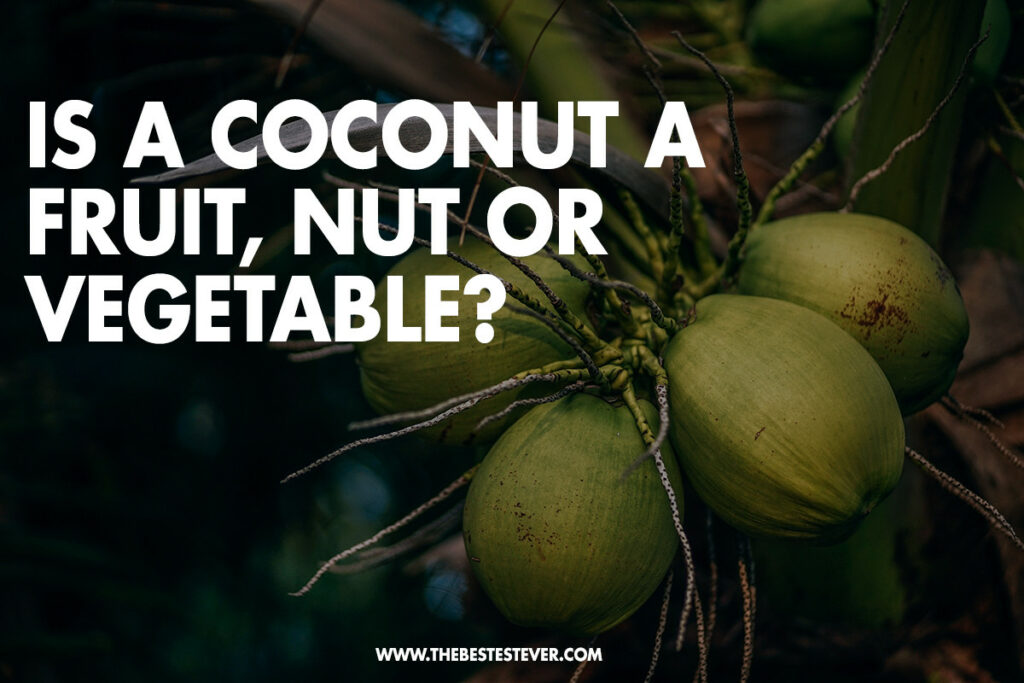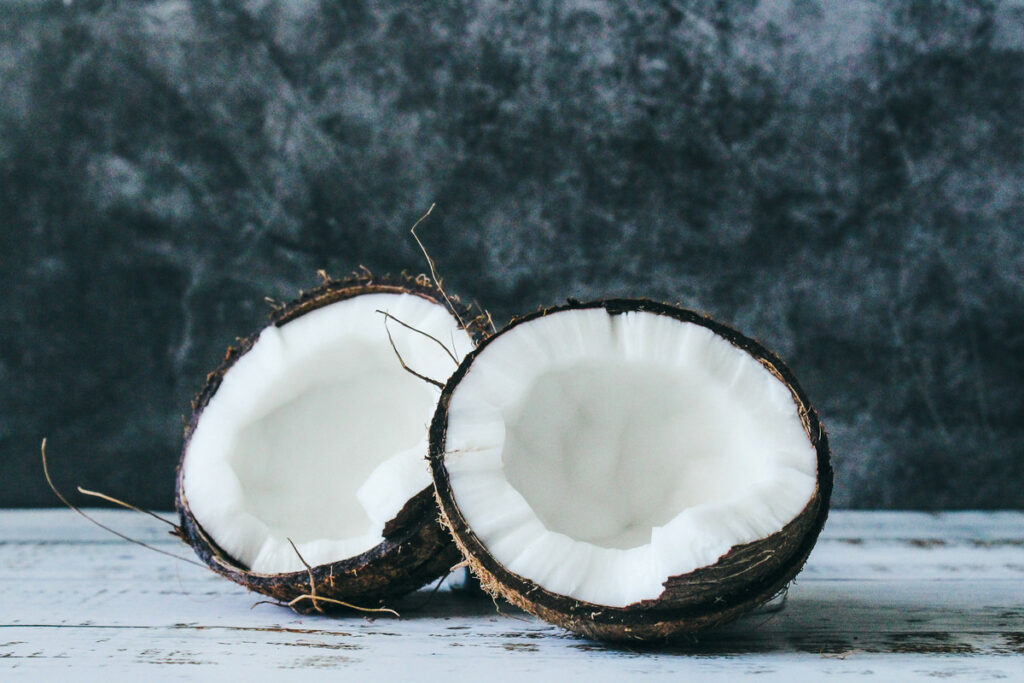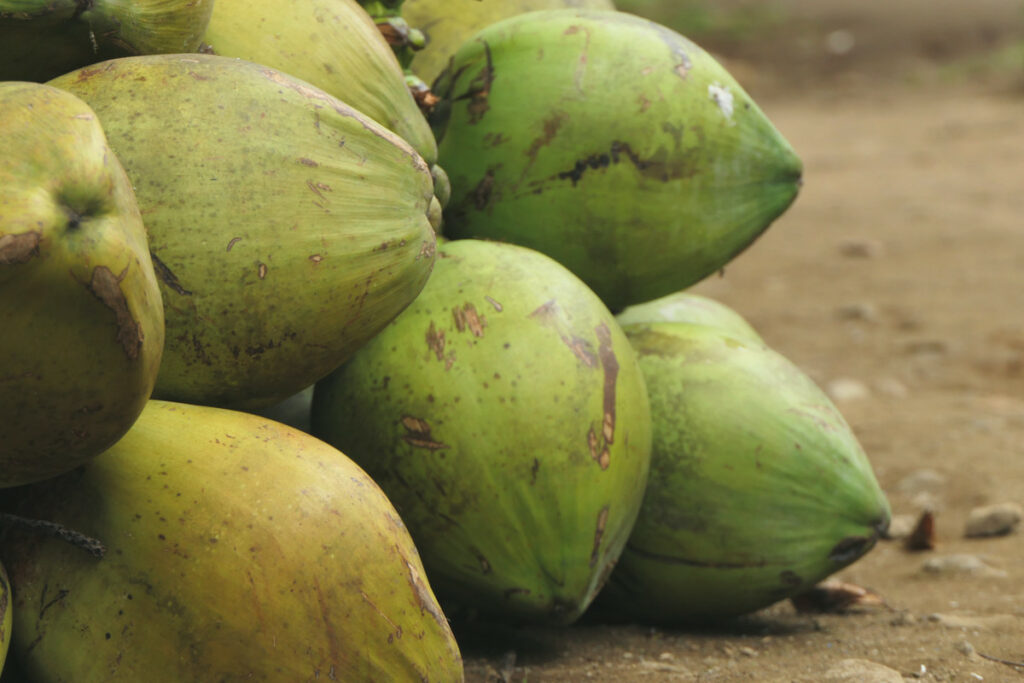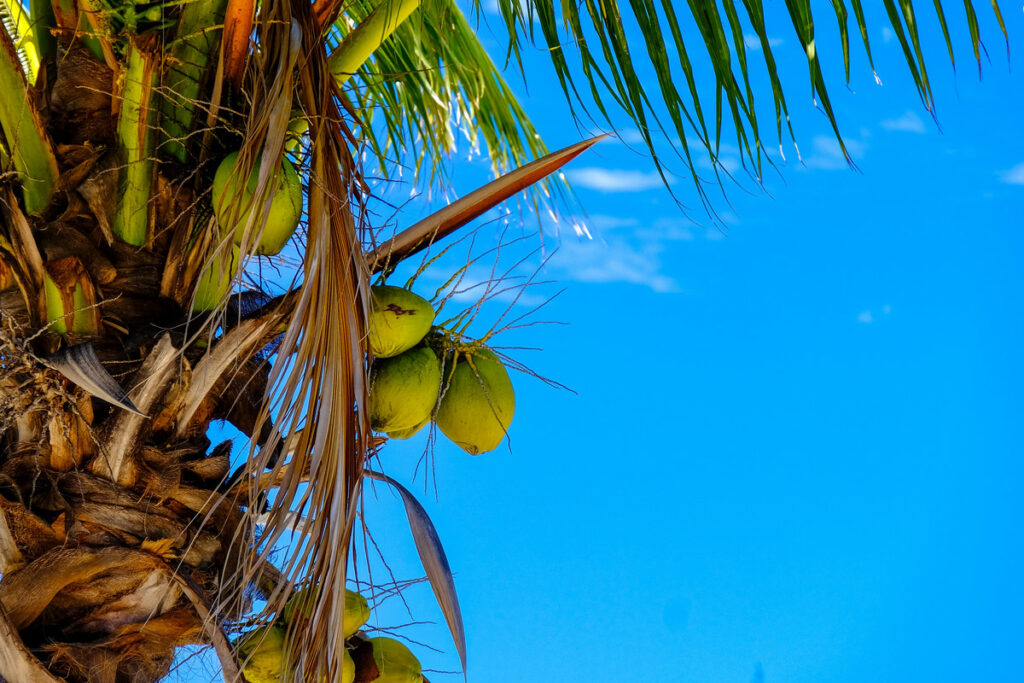
Coconuts are a delicious and versatile food that can be used in sweet or savory dishes. But what exactly are they? Are they fruits, nuts, or vegetables?
If you are a bit confused as to what coconuts are, then you are in the right place. In this article, we’ll take a closer look at coconuts and explore their classification.
So, continue reading below to get your answer.
Well, Is Coconut A Nut?

Because coconut has the word “nut” in it, many people automatically assume that the food is indeed a nut.
According to Woodland Trust, a nut “is a seed contained in a hard shell which doesn’t naturally open to release the seed when it matures.”
Given this classification, one might jump to the conclusion that a coconut is a nut, which is not entirely true. In a loose way, coconuts are a nut as they have a type of hard shell and a seed on the inside of the hard shell.
Despite this, however, coconuts are not actually nuts as they germinate a new plant from their outer shells. This is not the case for nuts such as peanuts.
Answer: No, a Coconut is Not a Nut
So, Is Coconut A Vegetable?

No it is definitely not. A vegetable is the term used to refer to the fresh edible portion of a herbaceous plant. Vegetables may be roots, stems, leaves, flowers or seeds. Vegetables can be eaten raw in some instances, but most are prepared by cooking as part of a larger meal. One of the main differences between fruits and vegetables is that vegetables are not usually sweet. Given this definition of what a vegetable is, it is clear to see why coconuts are not classified as a vegetable.
Is Coconut A Fruit Then?

Having explored what nuts and vegetables are, it’s only fair that we take a look at what are classified as fruits. Scientifically, a fruit is the sweet and fleshy part of a plant that contains seeds. Fruits are edible and are generally high in nutritional value. They are the products of flowering trees. Given the fact that coconuts are in fact flowering trees, it is safe to say that coconuts are indeed fruits.
Scientifically, coconuts are a type of fruit known as drupes. Drupes are fruits with an interior flesh and seed that are encased in a hard shell. Fruits including peaches, pears, walnuts, and almonds fall under this category. The endocarp, mesocarp, and exocarp are the three outer layers that protect the seeds in drupes. Nuts, on the other hand, lack these protective coats.
Are People Allergic To Coconuts?
Because coconuts are classified as tree nuts by the FDA, it is natural to wonder if they come with allergies. Other tree nuts such as cashews, pistachios and walnuts can in fact induce allergic reactions. So, what about coconuts?
While coconut is technically labeled a tree nut, it typically does not cause food allergies, so even if you are allergic to nuts you should be able to consume coconut products without having a reaction.
On the other hand, skin products made with coconut oil can cause allergic reactions to the skin. Coconut dermatitis is way more common than food allergy linked to coconuts. This can be induced by using coconut products such as shampoos, lotions, oils and body creams.
Conclusion
It is human nature to want to place things into distinct unique categories, but some items like coconut are just not easy to classify. Depending on their uses and appearance they may be put into multiple categories, some more fitting than others.
Scientifically, coconuts are fruits, but they are also classified as nuts by some government agencies. They do not, however, cause the typical allergies associated with nuts, so they can be enjoyed with less reservation.
So, what’s the takeaway? Whatever you classify coconuts as, feel free to enjoy them in a myriad of ways.